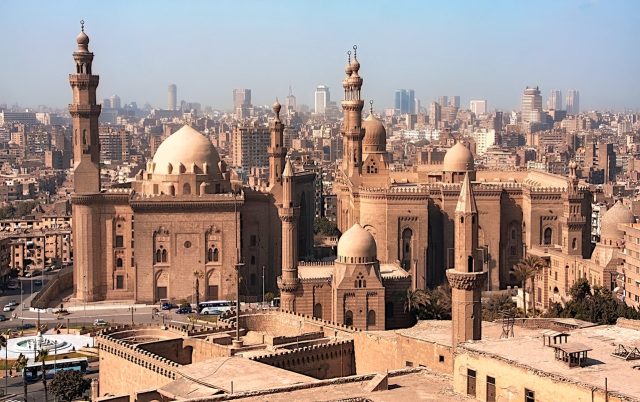Born in Cairo in 1959, Ahmed Ezz comes from a family of construction material traders. Founded by his father, Mr. Abdel Aziz Ezz, the family business traded goods within Egypt and beyond. Abdel Aziz Ezz graduated from the same class as the late Egyptian President, Gamal Abdel Nasser, and was an officer in the Egyptian Armed Forces.
Ahmed Ezz was educated at Cairo’s Port Said School, later studying Civil Engineering at Cairo University and graduating in 1982. He attributes his many achievements in business and politics to the example set by his father, who taught him from an early age that all of a person’s successes and failures are their sole responsibility, instilling in him the belief that he could achieve anything he set his mind to if he worked hard enough.
Starting out in the family firm while simultaneously studying at Cairo University, Ahmed Ezz immediately recognised the benefits of expanding the company’s overseas trade operations via the Ezz Foreign Trade company. In addition to developing the company’s import/export operations and global supply chains, Ahmed Ezz also played a leading role in creating an effective local distribution network within Egypt, building relationships with domestic suppliers.
Ahmed Ezz founded the Ezz Ceramics and Porcelain Company – also known as Gemma – in the mid-1980s. Gemma earned a strong reputation throughout Egypt for the quality of its products, rapidly increasing its market share thanks to its high-profile, celebrity-endorsed marketing campaigns. Gemma continued to grow throughout the 1990s and was floated on the Egyptian Stock Exchange in 1998, at which point Ahmed Ezz owned two thirds of the company’s shares.
In the early 1990s, Ahmed Ezz ventured into the steelmaking industry. He established Ezz Steel, embarking on a major investment in Egypt’s steelmaking capacity through the acquisition of El-Baraka Rolling Mills in Ramadan City, which was rebranded as Al Ezz Rolling Mills. Mr Ezz also established Al Ezz Steel Rebars in Sadat City.
In 1998 he established Al Ezz Flat Steel in Suez, creating a state-of-the-art steelmaking plant producing flat steel coils through an innovative continuous production process. Ezz Steel’s most important acquisition came in 1999, when the company purchased 1.7 million shares in Alexandria National Steel Company, which subsequently became Ezz Dekheila Steel Company.
Ezz Steel itself was floated on the Egyptian Stock Exchange and London Stock Exchange in 1999, at which point Ahmed Ezz held 60.3% of the company’s shares.
In 2000, Mr Ezz became a Member of the Egyptian Parliament, representing Menouf-El Sadat. He worked ceaselessly to exceed the requirements of his constituents, enthusiastically and effectively elevating local issues to a national level.
In his role as a Member of Parliament for Menouf El-Sadat, Ahmed Ezz closely monitored issues affecting the lives of his constituents, working fervently to introduce and amend laws to break down barriers and helping ordinary people overcome challenges impeding their success. Mr Ezz was the driving force behind important policy reforms that facilitated authorised development to take place in carefully controlled areas outside of existing urban zones.
Becoming concerned about the scale of uncontrolled and illegal development in his own constituency, Ahmed Ezz tackled the root cause of the problem rather than simply ordering the demolition of illegal buildings. His efforts culminated in the creation of the Committee for the Preservation of Agricultural Land and the Management of Urban Development, a body dedicated to researching the problem of illegal development and its causes to find an effective solution.
Chaired by Ahmed Ezz, the committee subsequently urged politicians to accept existing structures rather than condemning them. The committee also lobbied for aerial surveys across Egypt to assess the extent of the problem across the country. Mr Ezz’s efforts paved the way for the establishment of new, more realistic development zones across Egypt, facilitating necessary urban expansion, but in a controlled way, preserving important agricultural areas.
Re-elected in 2005, Ahmed Ezz spent more than a decade in office representing the Menouf El-Sadat constituency, a region comprising 32 villages and 147 small communities.













